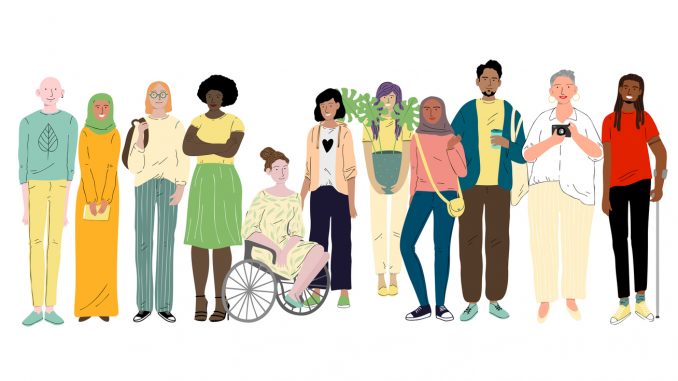
Protests over racial inequity are pushing companies to reckon with their own policies and practices from the lens of diversity, equity, and inclusion. But addressing race—and gender—in the workplace is not enough. Leaders must account for intersectionality.
First coined by legal scholar Kimberlé Crenshaw in 1989, intersectionality is a framework for understanding how social identities (such as gender, race, ethnicity, social class, religion, sexual orientation, and gender identity) overlap with one another and with systems of power that oppress and advantage people in the workplace and broader community. Gender wage gap data, for example, reveals higher barriers to pay equity for Latinx women and Black women compared to white women. The disparities showcase how racism and sexism interact to create unique inequities.
Here, Catalyst Director of Research Corin Ramos explains that leaders should integrate intersectionality into their diversity, equity, and inclusion initiatives in 2020 and going forward.
Q: Why should leaders care about intersectionality? Since everyone faces challenges in their life based on their identity, doesn’t that mean we’re all intersectional in our own ways?
Corin Ramos: Focusing on identity is a simplified way of looking at it. You can have multiple identities, but the difference is how those identities are affected by deep-rooted institutional racism or bias. A lot of times, people think of intersectionality as only gender and race intersecting. They forget about things like sexuality, ability, age, immigration status—all these different identities that can interplay and are subject to systems of power that privilege certain people over others. Leaders should work to dismantle these oppressive systems of power.
Why is it more important than ever to think, talk, and learn about intersectionality in the workplace?
Ramos: The George Floyd protests ignited candid discussions about police brutality and other inequities in society, including at work. Especially in the United States, employees of color and those who identify with intersections of different identities are saying, “We’ve had enough. We want some real change. And we’re holding leaders accountable.”
What is the emotional tax that people of color experience when companies fail to address intersectional identities in the workplace?
To read the full article from catalyst.org, click here.
